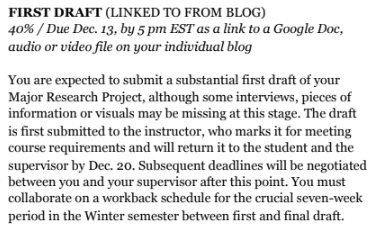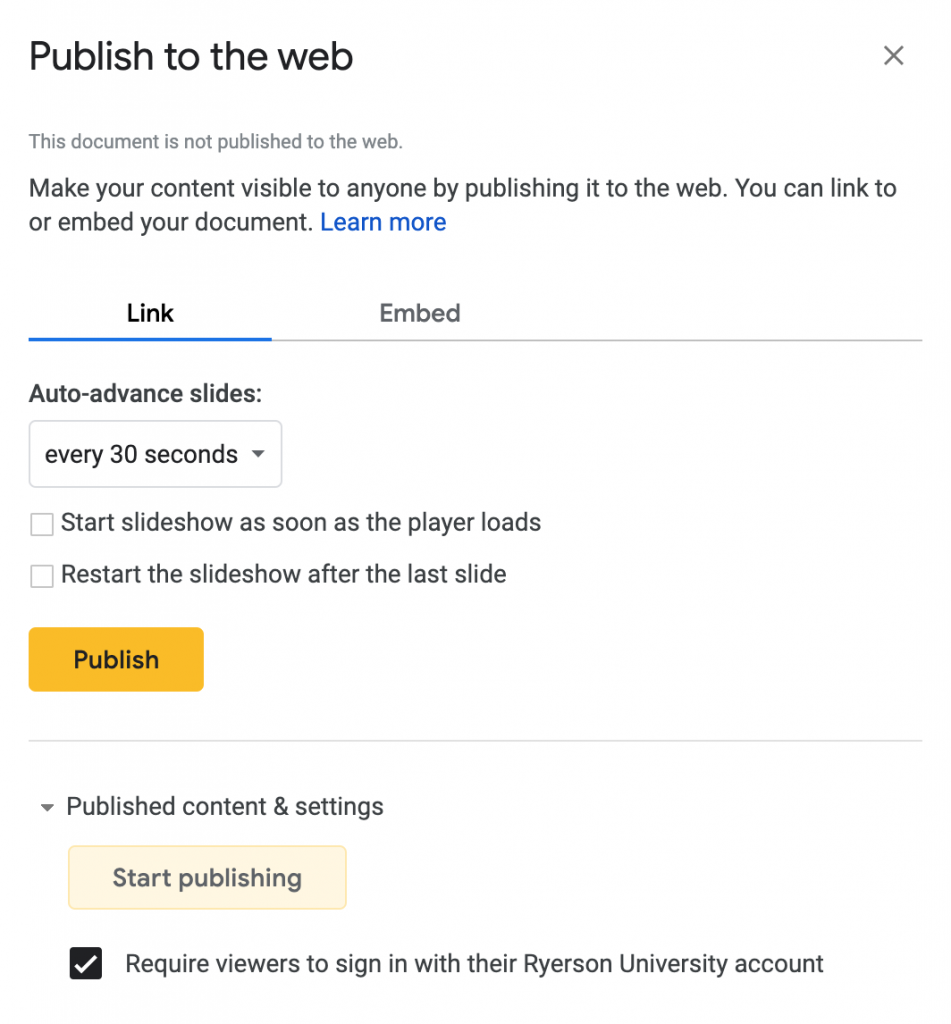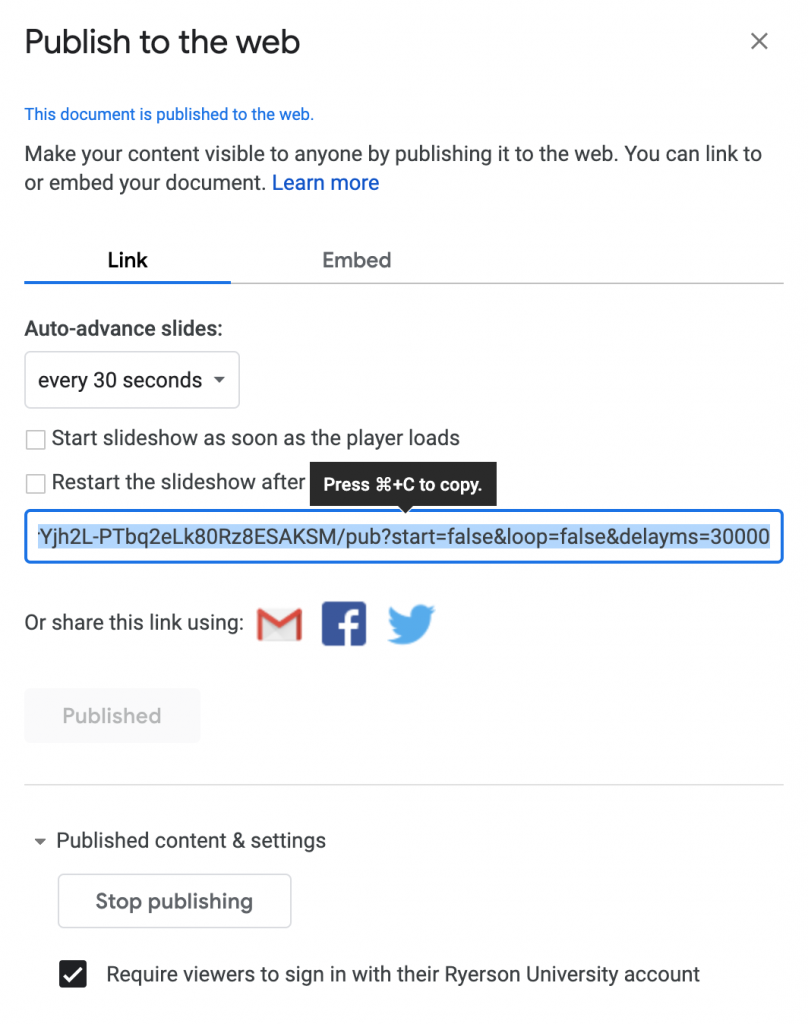If you haven’t read the course outline which contains the complete schedule as well as readings and details about the course assignments, please do so before reading this post.
This week’s course materials:
The Twibling Project (Anderson, 2016)
Ambient, Sir (Scott, 2018)
A Hard Place for a Wolf (Segal, 2017)
‘Your doc is great, now shorten it by two minutes’ (Anderson, 2016)
Friday Memo: A reminder that your second Friday Memo is due as a 350-400-word post on your individual blog on Friday, Sept. 20 before 5 p.m. You will be writing a weekly reflective blog post updating me, your supervisor and your peer partner on your progress with the production of your MRP. Topics you might want to address include interviews, research, visuals, pivots, challenges and triumphs. You will receive a Pass (10) for each published post and a Fail (0) for each week missed. Each week, I will raise issues that come up for class discussion.
RSJ instructor and award-winning audio producer Kalli Anderson is coming to talk to the class on Wednesday, Sept. 25 about how you find the story in your interviews, audio and video footage and in your own editing process. Along a piece that she produced that was nominated for a CAJ award, Kalli has suggested two other radio documentaries to listen to before her visit. She will also be sharing a work in progress, a non-narrated piece that includes tape of an interviewee needed to be kept anonymous for reasons related to incarceration.
The Twiblings Project: Nancy Sinclair had always wanted a big family. But after a particularly devastating loss, she was worried she might have to give up on that dream. Nancy and her husband Lee decided to enlist an acquaintance as a surrogate. In most cases, people use a surrogate when getting pregnant on their own isn’t an option. But for Nancy and Lee, this surrogacy served a different purpose.
Ambient, Sir: After studying interrogation transcripts from Guantánamo Bay detention camp, Jordan Scott, a poet who stutters, grew interested in how detainees’ stutters were systematically interpreted as signs of their dishonesty. Scott applied to tour the prison to interview interrogators about this, but at the last minute was informed that his interviews wouldn’t be possible. With Guantánamo’s strict censorship policies in mind, Scott changed tactics. He asked to record ambient sound at the prison instead. Gitmo officials, though puzzled, obliged.
A Hard Place for a Wolf: Wolves have have had a troubled existence in Banff ever since the national park was founded in 1885. In the 1920s, wolves were nearly wiped out of the park, and in the 1950s, they disappeared entirely. It wasn’t until the 1980s that wolves returned to the park. But the area near the town of Banff — filled with cars, trains and hordes of tourists — has always been especially difficult for wolves. There is currently a single wolf pack living near the town of Banff. Locals know them as the Bow Valley pack. They first showed up a few years ago, but things took a bad turn for them last year.
Focus group feedback: On Wednesday, Sept. 25, from 3-4:15 pm, Ryerson curriculum development consultants Paola Borin and Julia Gingerich will be coming to hold a focus group on the first year of the new MJ curriculum. You will have the opportunity to share your thoughts on what worked and what didn’t, as well as offer suggestions and ideas for change. There will be coffee and snacks for the session. I will not be in attendance.
One-on-one feedback: I have sent you my feedback on your Expanded Treatments. Over-all, they were great reading and have gotten me very excited to see your completed MRPs in May. I focused on a few key points in most cases and am happy to offer more detailed feedback one-on-one in the last hour of class, with the exception of the week we’re doing focus groups. Of course, you should keep in regular contact with your MRP supervisor, who will help shape your work over the year. You can also send me an email to set up a more convenient time to talk.



